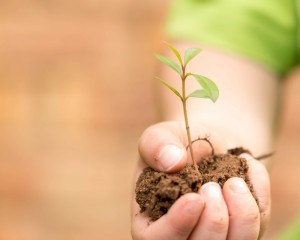 Protecting The Environment
Protecting The Environment
Adults know good and well if we don’t change our habits the planet is going to suffer even more than it already has. The importance of preserving and protecting the beauty of nature isn’t just about the trees and birds, but it is also paramount to human survival. Without humans the earth’s plants and animals can continue to thrive, but without all that nature has to offer, humans will not do so well.
The importance of protecting the environment is undisputable, but how do you get this message across to children so that they contribute to environmentally friendly practices? At Camp Live Oak, we use a number of fun and educational activities that expose children to the magic of natural in all new ways, highlighting how important and fragile the natural world really is. Environmentally conscious camps can only do so much, the most powerful examples for children come from those they see on a regular basis, including parents, teachers, and peers.
3 Things The Environmentally Conscious Child Knows
Here we explain 3 things all children should know about environmental protection, as well as some ways to help your child start practicing environmentally friendly behaviors.
1. Don’t Leave The Faucet Running
These days it’s not just important for kids to brush their teeth, but for them to turn off the faucet while they do so. Once upon a time, the idea of a water shortage wasn’t given much thought, back when water was free. Now, people spend all kinds of money buying packaged water bottles, and the price of water is only expected to increase as supplies become more parched.
Talking to your kids openly about the importance of conserving water in a real-life, straight talk manner can help them understand from an early age why they should never leave the faucet carelessly running. It’s one thing to explain all of this to your child, but it’s also important to follow the guidelines and set a good example yourself (Learn More).
2. Humans Are Contributing To Rising Climate Temperatures
Some still debate human impact on global warming, but the truth is in the scientific research. The planet is warming at rapidly fast rates, increasing right alongside globalization and the rise of industrialized life styles. The increase in temperatures may seem slight, but it is enough to cause melting ice caps, a decline in polar bears, and many other ecological issues. Take the time to discuss this with your child, explaining how they can modify their own actions and actually help save the polar bears and other arctic animals currently in danger.
3. The Dangers Of Landfills, The Importance of Recycling
Trashcans are everywhere, offering kids a place to toss their used items out and move on with life. Many kids remain unaware where all of this trash ends up and how it ultimately damages our environment. To help educate your child on this important issue, you can show them photos and videos of actual landfills. Explain how certain products take hundreds of years or more to break down, during which time they contribute to land, air, and water pollution.
Recycling, on the other hand, gives products a new chance at life and gives overburdened landfills a big break. Make sure to show your children how to identify recyclable goods and what to do with them. In order to create environmentally conscious members of society it’s adamant kids are taught the benefits of recycling and the importance of reducing waste.
How To Reduce Your Carbon Footprint
With all of this new knowledge your child is prepared to start actively protecting the environment through simple choices and everyday actions. Want to know how much your family contributes to environmental pollution? Make it into a fun activity and calculate your family’s actual carbon footprint by filling out a few questions on epa.gov.
Things you can to do reduce your carbon footprint include:
- Walking instead of driving whenever possible.
- Recycle anything and everything marked as recyclable.
- Buy recyclable goods whenever possible.
- Conserve energy; turn off lights, fans, and other electrical sources when not in use.
Camp Live Oak Is Environmentally Friendly!
Want to teach your child even more about preserving our incredible natural world? At Camp Live Oak we place a considerable emphasis on preserving nature for many more generations to come. After all, without the beauty of nature where would our camp be?
The ocean, lakes, and forests are lush with amazing animals and sceneries our campers enjoy year after year. In order for children to fully understand how important environmental protection is, they must see first-hand how amazing nature truly is. In order to further push the importance of environmental protection, we have now partnered up with the Leave No Trace Organization.
